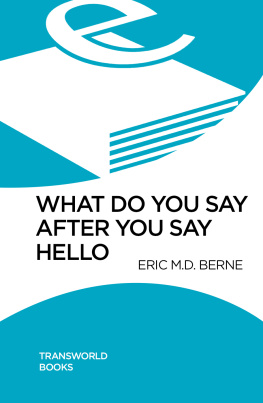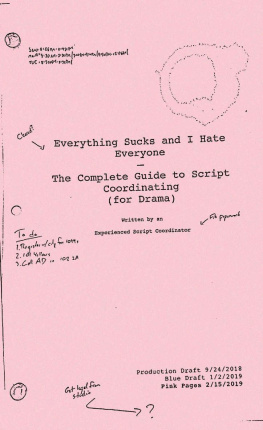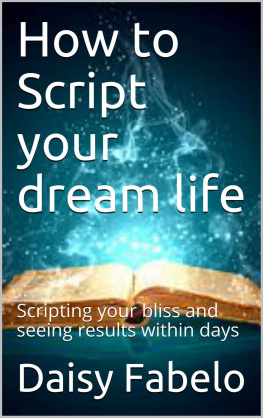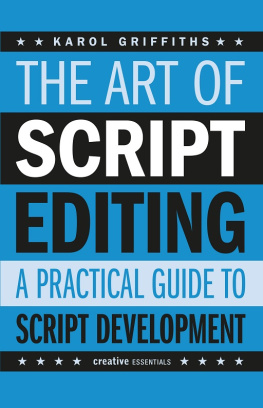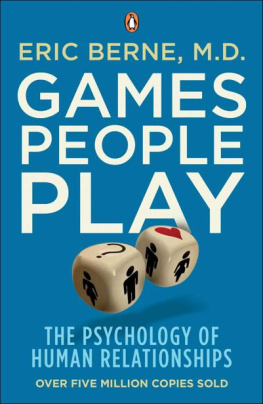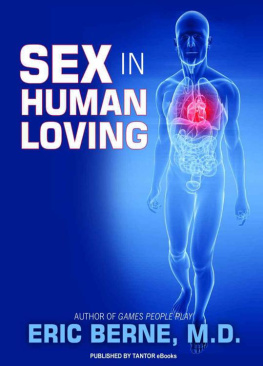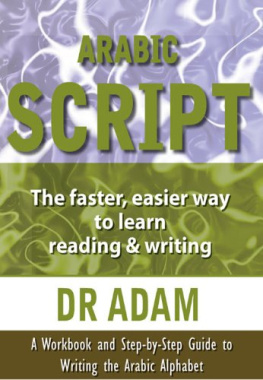Contents
What Do You Say
After You Say Hello?
THE PSYCHOLOGY OF HUMAN DESTINY
Eric Berne, MD
Semantics
As in my other books, he may refer to human beings of either sex, while she may be used if I think a statement applies more to women than to men; sometimes he may also be used for grammatical simplicity to distinguish therapist (male) from patient. I hope these convenient syntactic devices will not be taken amiss by emancipated women. Is means that I have a reasonably firm conviction about something, based on the clinical experience of myself and others. Seems to be or appears to be means that I am waiting for further evidence before making a firm commitment. The case histories have been drawn from my own experience and from those presented at seminars and supervisory sessions. Some are composites, and all have been masked from outside recognition, although significant incidents or dialogues are faithfully reported.
Eric Berne
TRANSWORLD PUBLISHERS
6163 Uxbridge Road, London W5 5SA
A Random House Group Company
www.transworldbooks.co.uk
WHAT DO YOU SAY AFTER YOU SAY HELLO?
A CORGI BOOK : 9780552098069
Version 1.0 Epub ISBN: 9781407056784
Originally published in Great Britain by Andr Deutsch Ltd
Andr Deutsch edition published 1974
Corgi edition published 1975
Copyright 1972 City National Bank, Beverly Hills, California; Robin Way; Janice Way Farlinger
This ebook is copyright material and must not be copied, reproduced, transferred, distributed, leased, licensed or publicly performed or used in any way except as specifically permitted in writing by the publishers, as allowed under the terms and conditions under which it was purchased or as strictly permitted by applicable copyright law. Any unauthorized distribution or use of this text may be a direct infringement of the authors and publishers rights and those responsible may be liable in law accordingly.
A CIP catalogue record for this book
is available from the British Library.
Addresses for Random House Group Ltd companies outside the UK can be found at:
www.randomhouse.co.uk
The Random House Group Ltd Reg. No. 954009
About the Book
What Do You Say After You Say Hello? explains what makes the winners win, the losers lose, and the in-betweens so boring...
In it, Dr Eric Berne reveals how everyones life follows a predetermined script a script they compose for themselves during early childhood. The script may be a sad one, it may be a successful one; it decides how a person will relate to his colleagues, what sort of person he will marry, how many children he will have, and even what sort of bed he will die in...
What Do You Say After You Say Hello? demonstrates how each life script gets written, how it works and, more important, how anyone can improvise or change his script to make a happy ending...
Table of Figures
Preface
This book is in direct succession to my previous ones on the transactional approach, and outlines the new developments in thinking and practice which have taken place during the last five years, chiefly the rapid advance in script analysis. During this period there has been a great increase in the number of trained transactional analysts. They are testing the established theories in many different fields, including industry, corrections, education, and politics, as well as in a variety of clinical situations. Many of them are making original contributions of their own, as mentioned in the text and footnotes.
This is primarily intended as an advanced textbook of psychotherapy, and professionals of different backgrounds should have no difficulty in translating into their own dialects the short and simple annals of transactional analysis. No doubt some nonprofessionals will read it too, and for that reason I have tried to make it accessible to them. It may demand thinking, but I hope it will not require deciphering.
Conventional psychotherapy ordinarily employs three different dialects: therapist-therapist, therapist-patient, and patient-patient, which are as different from each other as mandarin and Cantonese, or ancient Greek and modern Greek. Experience shows that eliminating these as far as possible in favour of a kua-yu or lingua franca of basic English increases the communication which many therapists so ardently court (and so diligently leave waiting at the altar, as the saying is). I have tried to avoid the fashion popular in the social, behavioral, and psychiatric sciences of masking uncertainty with redundancy and vagueness with prolixity, a practice which has its origins in the Faculty of Medicine of the University of Paris in the fourteenth century.
This has led to charges of popularization and oversimplification terms reminiscent of the old Central Committee accusations of bourgeois cosmopolitanism and capitalist deviation. Given the choice between the arcane and the open, between overcomplication and simplicity, I have thrown in with the people, tossing in a big word now and then as a sort of hamburger to distract the watchdogs of the academies, while I slip in through the basement doors and say Hello to my friends.
It is quite impossible to thank everybody who has helped in the development of transactional analysis, since they now number in the thousands. The ones I know best are the Teaching Members of the International Transactional Analysis Association, and the members of the San Francisco Transactional Analysis Seminar, which is the one I attend regularly every week. Those who have been most actively concerned with script analysis include Carl Bonner, Melvin Boyce, Michael Breen, Viola Callaghan, Hedges Capers, Leonard Campos, William Collins, Joseph Concannon, Patricia Crossman, John Dusay, Mary Edwards, Franklin Ernst, Kenneth Everts, Robert Goulding, Martin Groder, Gordon Haiberg, Thomas Harris, James Horewitz, Muriel James, Pat Jarvis, Stephen Karpman, David Kupfer, Pamela Levin, Jack Lindheimer, Paul McCormick, Jay Nichols, Margaret Northcott, Edward Olivier, W. Ray Poindexter, Solon Samuels, Myra Schapps, Jacqui Schiff, Zelig Selinger, Claude M. Steiner, James Yates, and Robert Zechnich.
In addition, I want to thank my secretary in San Francisco, Pamela Blum, for keeping the Seminar running smoothly and contributing her own ideas; and also her successors, Elaine Wark and Arden Rose; and particularly my secretary in Carmel, Mrs Mary N. Williams, without whose conscientiousness, skill, and application the physical manuscript, through all its drafts and changes, could never have come into being. My fifteen-year-old son, Terence, ably assisted me in collating the bibliography and drawings and other details of the manuscript, and my daughter, Ellen Calcaterra, read it and made many valuable suggestions. Finally, I want to thank my patients for being such good sports about revealing themselves, and for letting me go away on vacations so that I could think; and also the millions of readers in fifteen languages who encouraged me by their interest in reading one or another of my books.
PART I
General Considerations
CHAPTER ONE
Introduction
A What Do You Say After You Say Hello?
This childlike question, so apparently artless and free of the profundity expected of scientific inquiry, really contains within itself all the basic questions of human living and all the fundamental problems of the social sciences. It is the question that babies ask themselves, that children learn to accept corrupted answers to, that teen-agers ask each other and their advisors, that grownups evade by accepting the corrupted answers of their betters, and that wise old philosophers write books about without ever finding the answer. It contains both the primal question of social psychology: Why do people talk to each other? and the primal question of social psychiatry: Why do people like to be liked? Its answer is the answer to the questions posed by the Four Horsemen of the Apocalypse: war or peace, famine or plenty, pestilence or health, death or life. It is no wonder that few people find the answer in their lifetimes, since most go through life without ever finding the answer to the question which precedes it: How do you say Hello?
Next page
